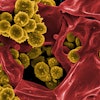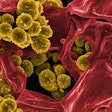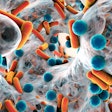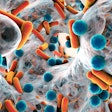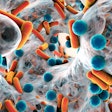
Five medical organizations have urged hospitals to establish programs to prevent Clostridioides difficile infections in updated guidance on the public health threat.
The guidance, which was published Wednesday in Infection Control & Hospital Epidemiology, is the latest in a series of papers dating back to 2008 about strategies to prevent C. difficile infections in acute care hospitals. Lead author Dr. Larry Kociolek, a vice president at Lurie’s Children’s Hospital of Chicago and a member of the Society for Healthcare Epidemiology of America, outlined the need for guidance.
“C. difficile is an urgent health threat, and hospitals need system-wide commitment to stop it. Because the use of antibiotics is strongly associated with C. difficile infections, antimicrobial stewardship – an approach to making sure these drugs are prescribed and used appropriately – is a strong first-line defense,” Kociolek said in a statement.
The updated guidance identifies diagnostic stewardship for the appropriate use and interpretation of C. difficile tests as an essential practice. In recent years, healthcare-associated cases of C. difficile have leveled off but community-associated infections have increased, leading Kociolek and his co-authors to see a heightened risk to hospitalized patients and enhanced need for quick and accurate diagnosis.
Other sections of the guidance emphasize assessment of the adequacy of room cleaning and address the procedures for cleaning equipment and the environment of patients with C. difficile. The document also covers topics including the need for timely alerts when patients are newly diagnosed, data reporting, the education of environmental services personnel, administrators, patients and families, and the additional steps hospitals can take if C. difficile incidence is still high even after they implement essential practices.
If widely adopted, the practices advocated by the authors of the guidance could help to reduce the impact of a pathogen that currently causes more than 450,000 infections a year in the U.S. Infections of hospitalized patients are associated with negative outcomes, such as increased likelihood of needing part or all of their colon removed and greater likelihood of being discharged to a nursing home.
The U.S. Centers for Disease Control and Prevention (CDC) lists “people staying in hospitals and nursing homes for a long period of time” among the groups who are more likely to develop infections. Cases of C. difficile are typically a side effect of taking antibiotics, with symptoms starting days or weeks after the start of treatment. Symptoms include diarrhea, which can be life-threatening.
